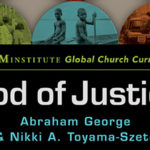The Prodigal Prophet: Jonah and the Mystery of God’s Mercy
By Timothy Keller (Viking)
Timothy Keller examines and applies the story of Jonah in 12 fast-paced chapters, mirroring the pace of the original story. He jumps right into his commentary in the introduction.
 As the title suggests, Keller sees the story of Jonah and the parable of the prodigal son as parallels. The difference is Jonah embodies both brothers, the one who left bodily and the one who left spiritually. Throughout the book, Keller points out other parallels between Jonah and various passages in the Gospels.
As the title suggests, Keller sees the story of Jonah and the parable of the prodigal son as parallels. The difference is Jonah embodies both brothers, the one who left bodily and the one who left spiritually. Throughout the book, Keller points out other parallels between Jonah and various passages in the Gospels.
Those familiar with Keller will not be surprised by his uncanny ability to translate the mysteries and complexities of philosophy, theology and biblical studies into the language of the rest of us. Those new to Keller will be grateful and refreshed by how accessible his writing is.
One of the difficult topics Keller addresses is the effects of sin, writing that “every act of disobedience to God has a storm attached to it.” The difficulty is most keen in that these storms affect not only us but others around us.
He provides a helpful outline of Jonah, showing how the first two chapters as a whole parallel the second two chapters. Both halves of the story of Jonah are equally divided into God’s message to Jonah, Jonah’s interaction with pagans, and Jonah’s reaction to God’s mercy and grace. The parallelism of Jonah allows the careful reader to see deep irony between the two halves.
The final three chapters of The Prodigal Prophet turn from a study of Jonah’s story to a study of how his story is reflected in our own. Keller begins with sin, describing it as an expression of our lack of trust in God and our unwillingness to suffer by obeying God.
He then challenges readers to consider the seriousness of Christ’s expectation that his followers will work for the common good. To do so, Christians must engage in evangelism and mission—especially in urban settings. They also must hold to traditional biblical morality, which simultaneously undergirds and opposes modern secular morality.
The final chapter calls the reader to a full realization and understanding of God’s grace. Only with such understanding can a person be free from the power of sin and enlivened to live in joy.
The Prodigal Prophet would make a great study for a Sunday school class or home group or for someone ready to be spiritually challenged.
Sign up for our weekly edition and get all our headlines in your inbox on Thursdays
Eric Black, executive director/editor/publisher
Baptist Standard














We seek to connect God’s story and God’s people around the world. To learn more about God’s story, click here.
Send comments and feedback to Eric Black, our editor. For comments to be published, please specify “letter to the editor.” Maximum length for publication is 300 words.